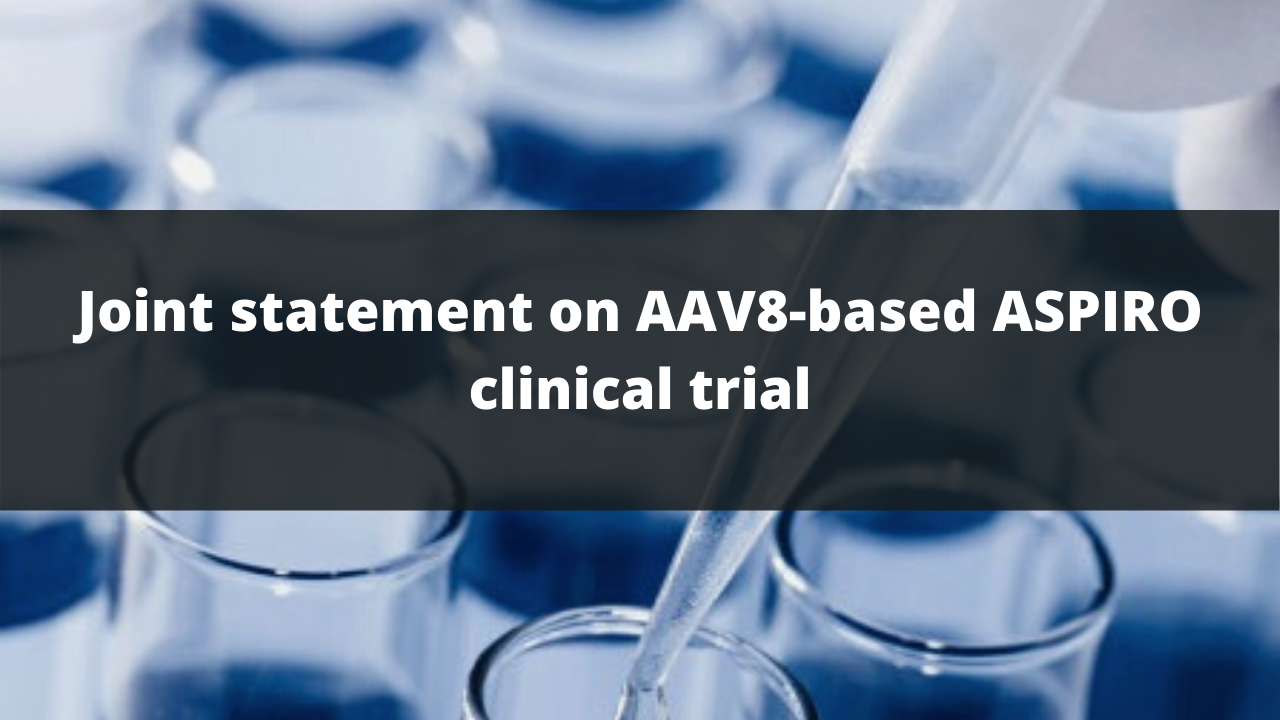The European Association for Haemophilia and Allied Disorders (EAHAD) and European Haemophilia Consortium (EHC) have become aware of two deaths in patients with X-linked myotubular myopathy (XLMTM) on an AAV8-based gene therapy (AT132) in the phase 1/2 ASPIRO clinical trial conducted by Audentes, a subsidiary of Astellas. EHC and EAHAD are closely monitoring developments in this area due to this adeno-associated viral vector (AAV8) also being used in haemophilia gene therapy trials.
About XLMTM
XLMTM is a very rare disorder with an estimated mortality of 25% in the first year of life and 10% per year after age one . It is characterized by progressive muscle weakness and decreased muscle tone that impair the development of motor skills and may disrupt primary functions such as breathing.
About AT132
The candidate therapy AT132 was granted Priority Medicine (PRIME) designation by the European Medicines Agency (EMA) in 2018 and Fast Track designation by the US Food and Drug Administration (FDA). AT132 is comprised of an AAV8 vector containing a functional copy of the missing or defective MTM1 gene.
About ASPIRO
As a phase 1/2 clinical trial, the goal of ASPIRO is to investigate the safety of AT132, its optimal dose and its effectiveness in producing the MTM1 gene. The inclusion criteria age is under 5 years old. The dosing cohorts are 1 x 1014 vg/kg and 3 x 1014 vg/kg.
About the recent deaths
At the highest dose of 3 x 1014 vg/kg, patients developed severe liver inflammation. In two patients, this liver damage resulted in multiple complications within weeks following AT132 dosing leading to death. XLMTM patients have a range of medical complications, which may have contributed to the deaths. Investigations around both deaths are ongoing but preliminary reports indicate a similar clinical course. Both patients were of an older age within their paediatric cohort, heavier weight and showed evidence of pre-existing hepatobiliary disease. The company reports that among the six patients treated at the lower dose of 1 x 1014 vg/kg none have developed liver SAEs years out from the treatment.
Differences with gene therapy in haemophilia
Although the information published to date on the complications of the ASPIRO clinical trial is very limited, there is evidence of significant differences in the treatment modalities and characteristics of patients treated with gene therapy for haemophilia. The highest dose being investigated for haemophilia gene therapies (1013 vg/kg range) is significantly lower than the highest dose used in the ASPIRO trial. The age criteria for haemophilia gene therapy trials is above 18 years of age, whereas in the ASPIRO trial it is under 5 years of age. In addition, evidence of pre-existing hepatobiliary disease was described in the deceased patients of the ASPIRO trial, which is a clear exclusion criterion for the gene therapy of haemophilia.
The haemophilia patient and healthcare provider community continue to closely monitor these and other developments in all relevant gene therapy trials to ensure maximum learning, understanding and safety of these novel therapies. We maintain continuous and close engagement with regulators.
You can download the position statement (PDF) here

